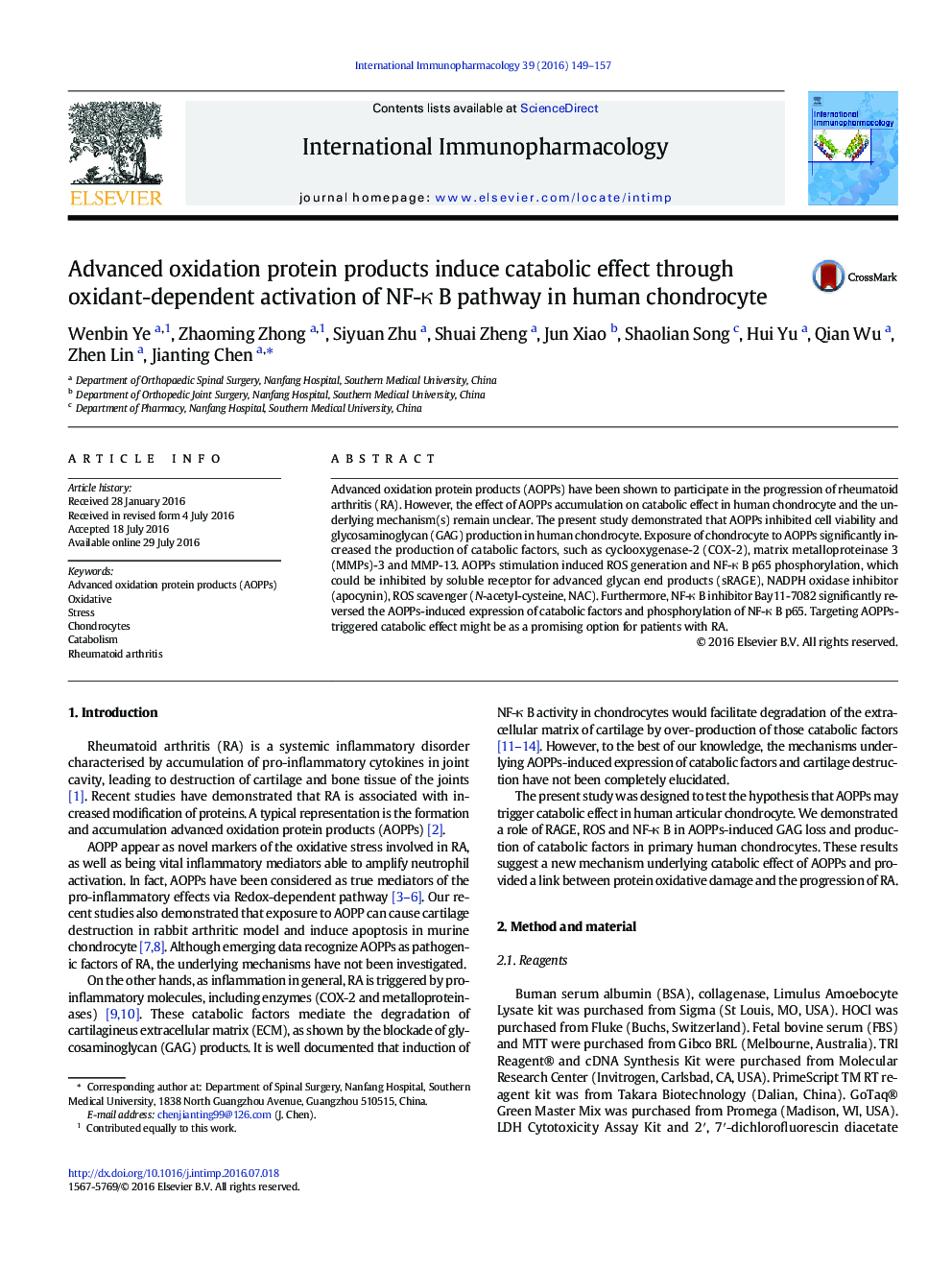| کد مقاله | کد نشریه | سال انتشار | مقاله انگلیسی | نسخه تمام متن |
|---|---|---|---|---|
| 2540203 | 1559751 | 2016 | 9 صفحه PDF | دانلود رایگان |

• AOPPs increased catabolic factors expression and decreased glycosaminoglycan production.
• AOPPs-induced catabolic factor expression was mediated by NF-κB activation.
• NF-κB activation was associated with RAGE-mediated, NADPH-dependent ROS generation pathway.
Advanced oxidation protein products (AOPPs) have been shown to participate in the progression of rheumatoid arthritis (RA). However, the effect of AOPPs accumulation on catabolic effect in human chondrocyte and the underlying mechanism(s) remain unclear. The present study demonstrated that AOPPs inhibited cell viability and glycosaminoglycan (GAG) production in human chondrocyte. Exposure of chondrocyte to AOPPs significantly increased the production of catabolic factors, such as cyclooxygenase-2 (COX-2), matrix metalloproteinase 3 (MMPs)-3 and MMP-13. AOPPs stimulation induced ROS generation and NF-κ B p65 phosphorylation, which could be inhibited by soluble receptor for advanced glycan end products (sRAGE), NADPH oxidase inhibitor (apocynin), ROS scavenger (N-acetyl-cysteine, NAC). Furthermore, NF-κ B inhibitor Bay11-7082 significantly reversed the AOPPs-induced expression of catabolic factors and phosphorylation of NF-κ B p65. Targeting AOPPs-triggered catabolic effect might be as a promising option for patients with RA.
Journal: International Immunopharmacology - Volume 39, October 2016, Pages 149–157